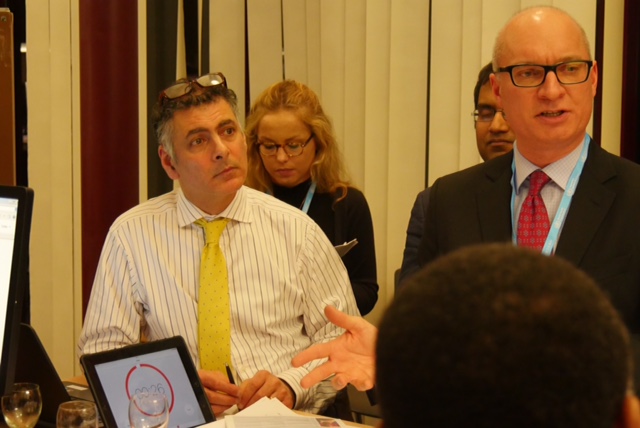By Rebecca Perl, Director, Partnerships and Initiatives, Vital Strategies
For the first time ever, last week in Geneva, the World Health Organization gathered Non-Communicable Disease (NCD) directors and program managers for a global meeting to support national governments’ efforts to implement time-bound commitments on NCDs. These include setting national NCD targets and working to achieve them in the next 10 years. Also, creating NCD plans, reducing risk factors for NCDs and strengthening health systems.
In recognition of the enormity of the NCD burden across the world, Some 150 managers and directors attended the meeting, including more than 25 from African countries and the Caribbean, as well as representatives from the governments of South East Asia, Latin America and Europe.
While the meeting itself was closed to civil society, a side event was held for NGOs to meet with NCD government focal points and offer them assistance and resources to help them with the difficult task of tackling the huge burden of NCDs across the countries of the world. Today, non-Communicable diseases kill 38 million people each year.
A large room at WHO’s Geneva headquarters was set up in the fashion of a marketplace, with stations where the focal points could listen to short presentations from civil society members offering assistance and resources in areas from financing for NCDs to help providing access to medicines.
José Luis Castro, Executive Director of The Union and President and CEO of Vital Strategies, was asked to present at the station on Coordination and Integration and he spoke about the interlinking of NCDs and communicable diseases such as the relationship between TB and diabetes.

José Luis Castro, (right) Speaking to NCD directors and managers at the WHO global meeting in Geneva
I was asked to chair the station on Prevention, where presenters provided tools and databases to assist and educate concerning reducing alcohol and tobacco use, and obesity – leading risk factors for NCDs.
The event highlighted the willingness and wealth of resources NGOs have to offer governments in their fight again NCDs. It seems that given this, it would be most welcome if subsequent WHO meetings, whether they be global, regional or national could be open to NGO’s, in much the same way the UN processes around NCDs were open and transparent.